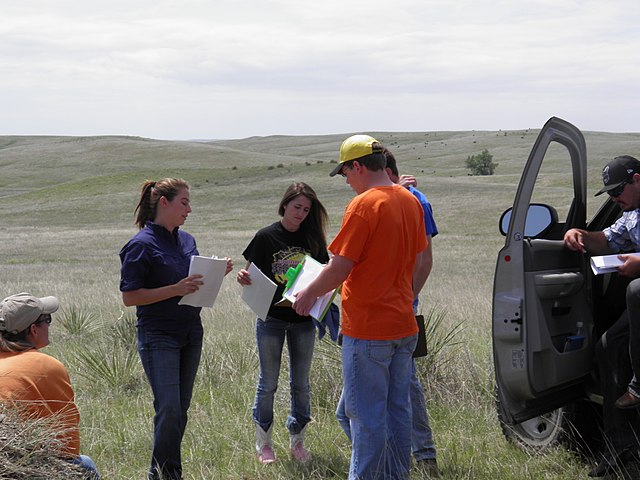In an assertive move to protect their agricultural interests, commissioners across multiple South Dakota counties are standing against the federal government’s push for compulsory electronic livestock identification. The South Dakota Stockgrowers Association (SDSGA) plays a pivotal role in this resistance, championing a cause deeply rooted in both economic and cultural significance to the state’s ranching community.
The opposition arises from the SDSGA, a prominent organization with an extensive influence across the region. Leading the charge is Kenny Fox, chairman of the association’s animal identification committee. Fox, a resident of Belvidere, South Dakota, articulated the concerns of local ranchers, emphasizing the resolution approvals in counties such as Haakon, Jackson, Perkins, and Harding. Each has passed resolutions to block what is perceived as federal overreach in their agricultural practices.
Fox expressed hope that this bold stance will capture national attention, ultimately persuading incoming President Trump to rescind what he described as the burdensome electronic identification mandate. “The vast majority of the 2,006 comments submitted on the federal register were in opposition to the rule,” Fox stated after a thorough review of public feedback.
The crux of the opposition lies in both the economic implications and the effectiveness of the existing systems. “Cost is a big reason,” Fox explained. “We had an existing system that worked well. The U.S. has the healthiest cattle herd we’ve ever had, using a variety of identification programs.” The economic burden of this initiative is stark, with a $3 price tag per electronic identification compared to the mere 17 cents for traditional metal clip tags. This disparity raises concerns about financial strain on the state’s beef producers.
Beyond financial arguments, Fox drew comparisons with international counterparts like Denmark, Ireland, and the Netherlands, where similar rules led to onerous regulations under the banner of climate change mitigation. “I don’t have a problem with people wanting to use EID tags,” Fox clarified. “My problem is the mandatory part of it.”
South Dakota’s regulatory landscape further complicates this federal mandate. A state law exists allowing various forms of official identification, granting farmers and ranchers the right to choose. Fox called upon the South Dakota Attorney General to ensure state laws are enforced, hinting at potential legislative movements to reinforce or overturn existing statutes.
South Dakota’s rich agricultural tapestry is not merely the backbone of its economy; it is integral to its identity. Email the SDSGA for more insight into their advocacy and legislative endeavors, preserving this heritage.
Haakon County, a historic bulwark in this narrative, embodies the spirit of resistance against federal mandates that don’t align with local interests. Formed in 1914, Haakon County holds symbolic importance, named after Norway’s King Haakon VII to draw Norwegian settlers. The county, with Philip as its seat, sprawls over 1,827 square miles, delineated by the Cheyenne and Bad Rivers, and is home to a population fiercely supportive of Republican ideals, having not endorsed a Democratic presidential candidate since 1936.
Amidst this landscape, the county’s voters united under a common cause: resisting federal overreach while preserving their way of life. This cultural and environmental stewardship is echoed in areas like the Billsburg State Game Production Area and sections of the Cheyenne State Game Production Area, both nestled within its borders.
Kenny Fox, whose leadership extends beyond ranching advocacy, was previously recognized posthumously for his valiant service as a firefighter. His legacy of service to his community underscores the resolve of South Dakotans to safeguard their traditions. The ongoing struggle against electronic livestock ID is but one of many battles in which they stand firm, united by resolve and history.
The South Dakota Stockgrowers Association extends an invitation to all who wish to learn more about their work; details and a wealth of resources are available on their official website. Engaging with their archival magazine collections or exploring their legislative involvement strengthens community bonds. Through shared knowledge and ongoing dialogue, South Dakota’s voice echoes in the broader conversation about agricultural practice, state sovereignty, and the future of ranching in America.
For a visual exploration of the landscape pivotal to this story, search for public domain images capturing the majestic expanse of Haakon County and other significant South Dakota terrains.
